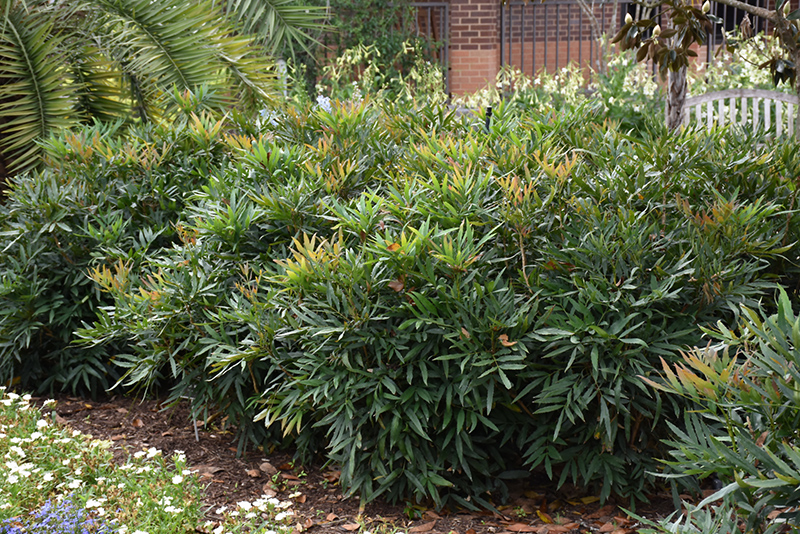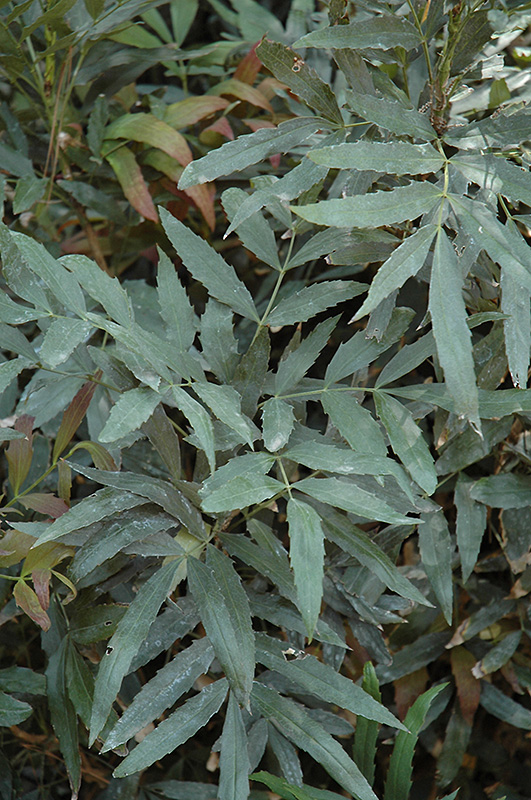Plant Search & Info
Height: 6 feet Spread: 6 feet
Sunlight:
Hardiness Zone: 6b Other Names: Chinese Mahonia, Grape Holly Description: Interesting gray-green foliage is narrow and graceful, and held on long branches, giving this upright shrub fabulous texture ; beautiful clusters of lemon yellow flowers in fall; needs winter protection in colder areas to prevent die-back Ornamental Features Fortune's Mahonia features bold racemes of fragrant lemon yellow flowers rising above the foliage in early fall. It has attractive grayish green foliage with chartreuse undersides. The spiny narrow pinnately compound leaves are highly ornamental and remain grayish green throughout the winter. Landscape Attributes Fortune's Mahonia is a multi-stemmed evergreen shrub with an upright spreading habit of growth. Its average texture blends into the landscape, but can be balanced by one or two finer or coarser trees or shrubs for an effective composition. This shrub will require occasional maintenance and upkeep, and should only be pruned after flowering to avoid removing any of the current season's flowers. Deer don't particularly care for this plant and will usually leave it alone in favor of tastier treats. Gardeners should be aware of the following characteristic(s) that may warrant special consideration; Fortune's Mahonia is recommended for the following landscape applications; Planting & Growing Fortune's Mahonia will grow to be about 6 feet tall at maturity, with a spread of 6 feet. It tends to fill out right to the ground and therefore doesn't necessarily require facer plants in front, and is suitable for planting under power lines. It grows at a medium rate, and under ideal conditions can be expected to live for approximately 20 years. This shrub does best in full sun to partial shade. It does best in average to evenly moist conditions, but will not tolerate standing water. It is not particular as to soil pH, but grows best in rich soils. It is somewhat tolerant of urban pollution, and will benefit from being planted in a relatively sheltered location. Consider applying a thick mulch around the root zone in winter to protect it in exposed locations or colder microclimates. This species is not originally from North America.![]()
![]()
![]()
![]()
![]()
![]()
![]()
![]()
![]()
![]()
![]()
![]()
![]()



